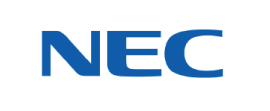Data Center Solutions: Revolutionizing the Digital Landscape
Data Center Solutions: Revolutionizing the Digital Landscape

In today’s digital age, data has become the lifeblood of businesses, fueling innovation, driving decision-making processes, and enabling seamless operations. With the exponential growth of data, organizations are increasingly relying on data centers to store, manage, and process this valuable resource. In this blog, we will explore the importance of data center solutions and how they are revolutionizing the digital landscape.
- The Role of Data Centers in the Digital Era:
Data centers serve as the nerve centers for businesses, providing a secure and efficient environment for storing and processing vast amounts of data. They play a crucial role in supporting various digital services, such as cloud computing, big data analytics, artificial intelligence, and Internet of Things (IoT) applications. Data centers act as the backbone of the modern digital infrastructure, ensuring uninterrupted connectivity and accessibility to data.
- Enhanced Scalability and Flexibility:
One of the key advantages of data center solutions is their ability to scale and adapt to changing business needs. Traditional on-premises data centers often face limitations in terms of capacity and scalability. However, with data center solutions, organizations can easily expand their infrastructure to accommodate increased data storage and processing requirements. This scalability ensures businesses can keep pace with the ever-growing demands of the digital landscape.
- Improved Security and Reliability:
Data centers employ robust security measures to protect sensitive information from unauthorized access, ensuring data privacy and compliance with regulatory standards. Advanced security features such as firewalls, encryption, multi-factor authentication, and physical access controls are integrated into data center solutions. Additionally, data centers are designed with redundancy and backup systems to ensure high availability and minimal downtime, safeguarding against data loss and service disruptions.
- Cost Optimization and Efficiency:
By leveraging data center solutions, businesses can optimize their IT infrastructure costs. Traditional on-premises data centers require significant capital investment in hardware, maintenance, and operational expenses. In contrast, data center solutions offer cost-effective alternatives, as organizations only pay for the resources they utilize, eliminating the need for upfront investments. Moreover, data centers are designed to be energy-efficient, reducing power consumption and minimizing carbon footprints.
- Disaster Recovery and Business Continuity:
Data center solutions provide robust disaster recovery capabilities to safeguard data in the event of unforeseen disruptions or natural disasters. With geographically dispersed data centers, businesses can replicate and backup critical data, ensuring business continuity and minimizing downtime. These solutions offer redundancy and failover mechanisms, enabling seamless failback and recovery, thus mitigating potential financial and reputational losses.
- Future-Proofing for Technological Advancements:
Data center solutions are constantly evolving to keep up with emerging technologies and industry trends. Providers continually invest in research and development to offer cutting-edge solutions, including edge computing, hybrid cloud integration, and software-defined infrastructure. By adopting data center solutions, businesses can future-proof their infrastructure, ensuring readiness for technological advancements and staying ahead in the digital transformation journey.
Conclusion:
Data center solutions have become indispensable for businesses navigating the digital landscape. With their scalability, security, cost optimization, and disaster recovery capabilities, these solutions enable organizations to unlock the full potential of their data assets. By embracing data center solutions, businesses can enhance their agility, competitiveness, and efficiency, ultimately driving innovation and growth in the digital era.
Recent Posts
- Traditional Servers vs. Hyperconverged Infrastructure: Navigating the Evolution of Data Center Architecture
- The Future of Healthcare: The Rise of Smart Hospitals
- Unlocking the Benefits of IT Managed Services: Partnering for Seamless Business Operations
- Access Control Systems: Protecting Your Business with Enhanced Security
- PABX: Streamlining Communication for Modern Businesses
Recent Comments
Search
Recent Comments
Recent Posts
- Traditional Servers vs. Hyperconverged Infrastructure: Navigating the Evolution of Data Center Architecture June 4, 2024
- The Future of Healthcare: The Rise of Smart Hospitals June 3, 2024
- Unlocking the Benefits of IT Managed Services: Partnering for Seamless Business Operations November 12, 2023
- Access Control Systems: Protecting Your Business with Enhanced Security November 12, 2023
Archives
- June 2024 (2)
- November 2023 (8)
- October 2023 (4)
- October 2022 (2)
Unlocking the Power of Technology: Your ICT Solution Partner













+63 917 627 9111
sales@prokora.com
Unit M01 DMG Center
52 Domingo Guevarra St.,
Mandaluyong 1550
All rights reserved . PROKORA NETWORK SOLUTIONS INC.
